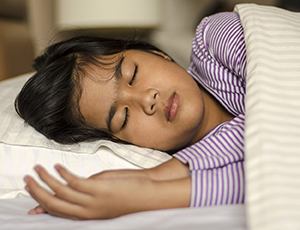Mononucleosis (Mono)
Mononucleosis (Mono)

How mono is spread
Mono can be easily transmitted from an infected person's saliva by:
Drinking and eating after them
Sharing a straw, cup, toothbrushes, and eating utensils
Kissing and close contact
Handling toys with children drool
Symptoms of mono
In children, common symptoms include:
Tiredness, weakness
Fever
Sore throat
Tender or swollen lymph nodes in the neck or armpits
Swollen tonsils
Rash
Sore muscles or stiffness
Headache
Loss of appetite, nausea
Dull pain in the stomach area
Enlarged liver and spleen
Headaches
Puffy eyes
Sensitivity to light
Treating mono
Because it is a viral infection, antibiotics won’t cure mono. Your child's healthcare provider may prescribe medicines to help ease your child's pain or discomfort. The best treatment for mono is rest. A child with mono should also drink lots of fluids. To help your child feel better and recover sooner:
Make sure your child gets enough rest.
Provide plenty of fluids, such as water or apple juice.
The spleen may become enlarged with mono. Your child may need to avoid contact sports, and heavy lifting for a while in order to prevent injury to the spleen. Discuss this with your child's healthcare provider.
Treat fever, sore throat, headache, or aching muscles with acetaminophen or ibuprofen. Never give your child aspirin. Your child's healthcare provider or nurse can help you with the correct dose.
Symptoms usually last for a few weeks, but can sometimes last for 1 to 2 months or longer. Even after symptoms go away, your child may be tired or weak for some time.
Preventing the spread of mono
While you’re caring for a child with mono:
Wash your hands with warm water and soap often, especially before and after tending to your sick child.
Monitor your own health and that of other family members.
Limit a sick child’s contact with other children.
Clean dishes and eating utensils used by a sick child separately in very hot, soapy water. Or run them through the dishwasher.
When to seek medical care
Call your child’s healthcare provider right away if your otherwise healthy child:
Is younger than 3 months and has a fever of 100.4°F (38°C) or higher
Is younger than 2 years old and has a fever that lasts more than 24 hours
Is 2 years old or older and the fever continues for 3 days
Has repeated fevers above 104°F (40°C) at any age
Has had a seizure caused by the fever
Experiences difficult or rapid breathing
Can’t be soothed or shows signs of irritability or restlessness
Seems unusually drowsy, listless, or unresponsive
Has trouble eating, drinking, or swallowing
Stops breathing, even for an instant
Shows signs of severe chest, neck, or belly pain
Updated:
March 28, 2018
Reviewed By:
Holloway, Beth Greenblatt, RN, M.Ed.,Image reviewed by StayWell art team.,Lentnek, Arnold, MD